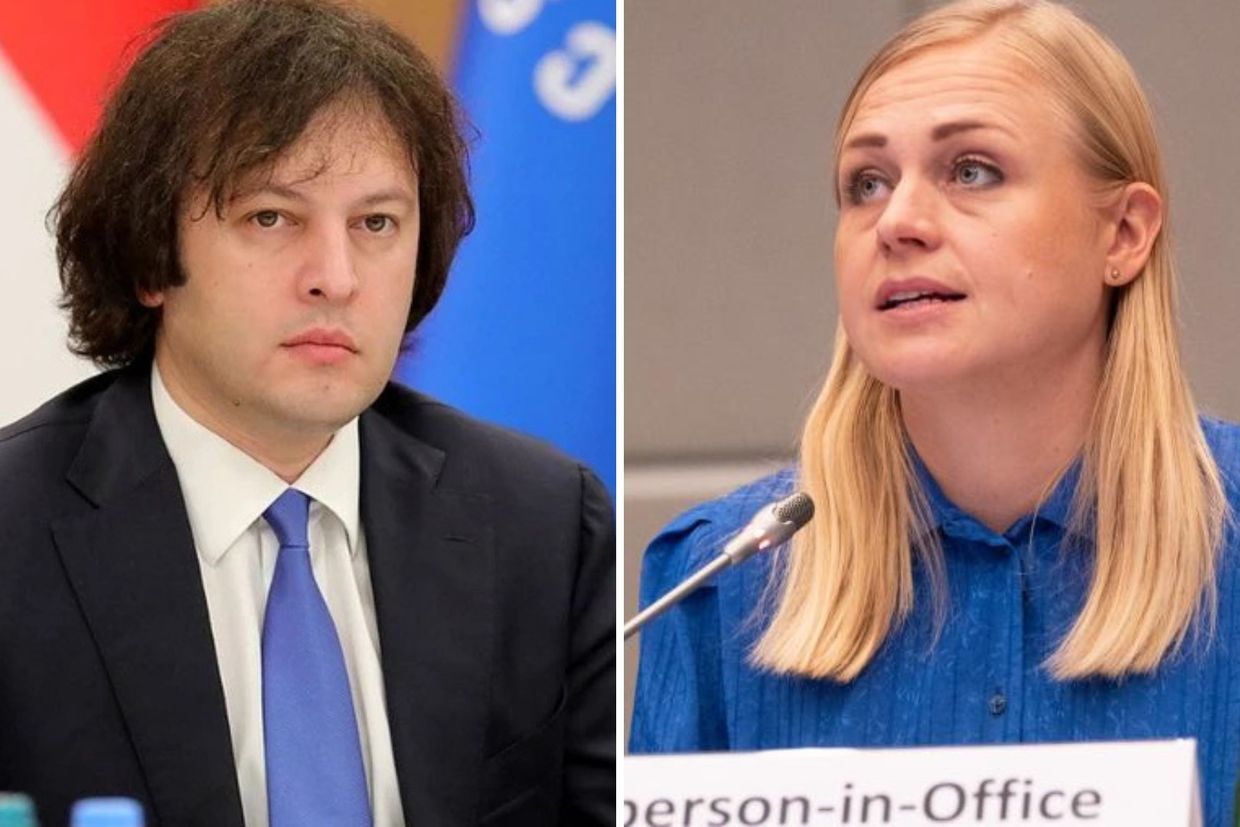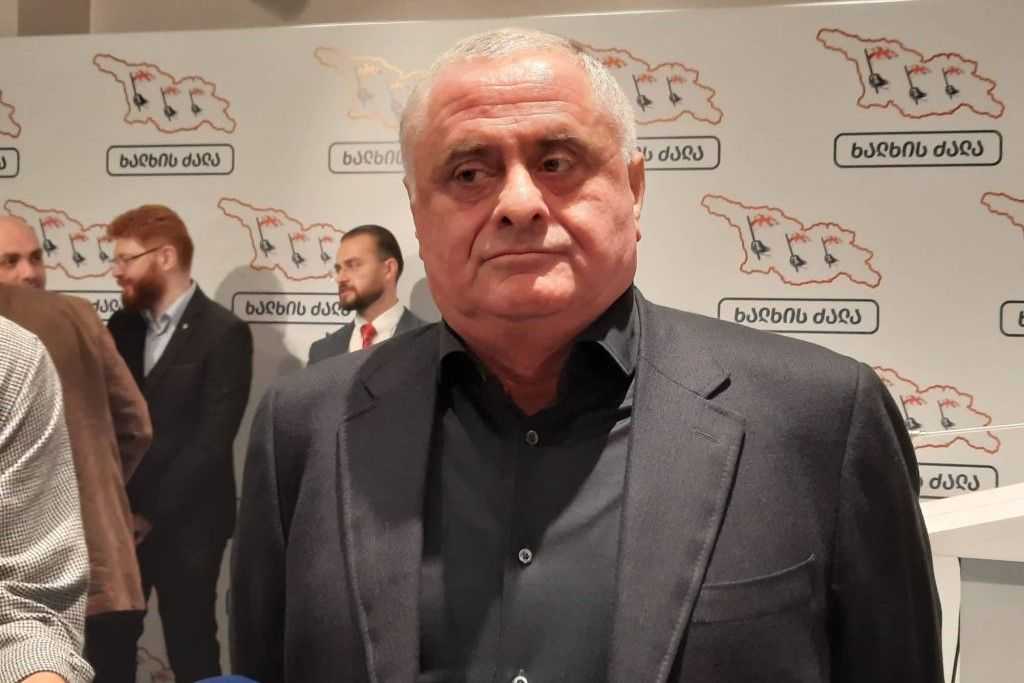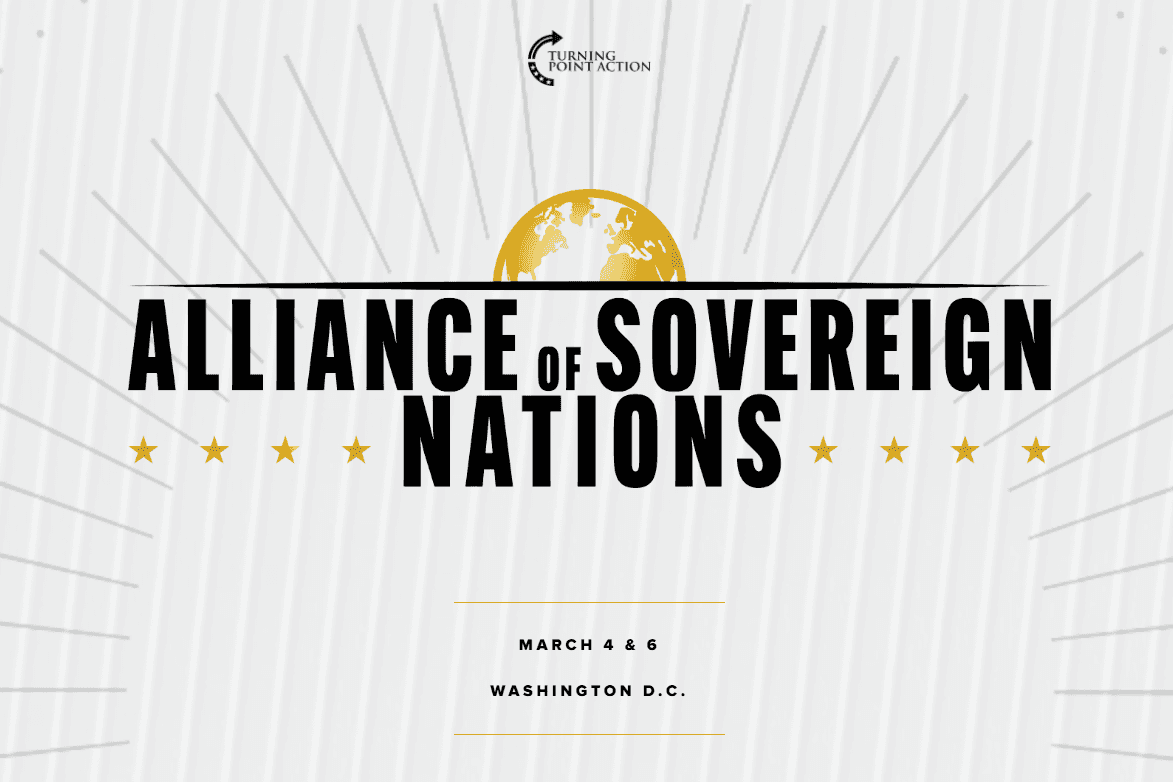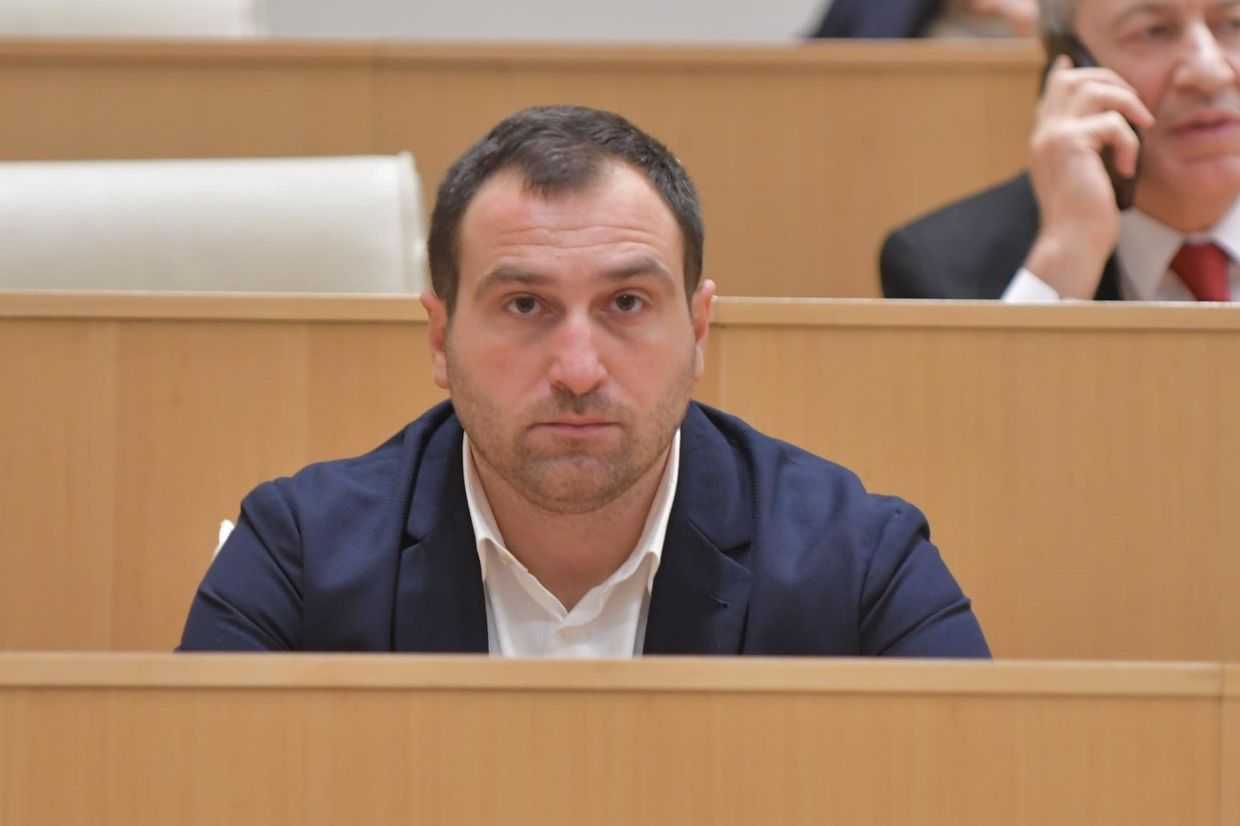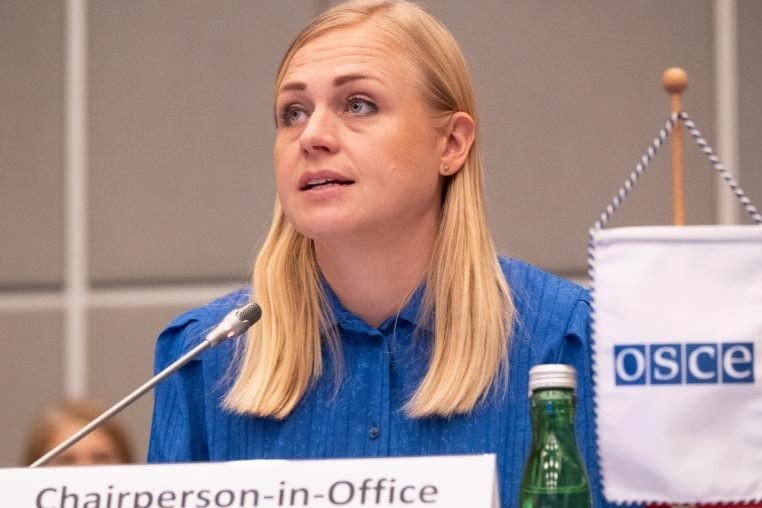
Georgia’s Interior Ministry fined OSCE Chairperson-in-Office and Finnish Foreign Minister Elina Valtonen for ‘blocking the road’ after she appeared at a daily anti-government protest in central Tbilisi on Tuesday. Her presence at the protest has been widely condemned by Georgian authorities, as well as Russian officials and other pro-Russian figures.
Georgia’s Interior Ministry confirmed to OC Media that Valtonen was fined ₾5,000 ($1,800) — the same penalty frequently imposed on participants in the ongoing anti-government protests.
Valtonen had arrived in Tbilisi as part of her South Caucasus tour, which included visits to Azerbaijan, Armenia, and Georgia from 13–15 October.
Following her meetings with Georgian Foreign Minister Maka Botchorishvili and representatives of civil society, Valtonen posted a video on Tuesday evening from Rustaveli Avenue in central Tbilisi — where anti-government protests have continued for more than 300 days, ever since the ruling Georgian Dream party suspended the country’s EU membership bid in November 2024.
‘There is a peaceful demonstration, gathering here […] the reason is that these people are concerned about the direction that this country has been taking; taking away the basic liberties of people, starting with the freedom of expression and the freedom of assembly’, Valtonen said in front of parliament, where the protest was taking place.
Peaceful protestors have gathered in front of the Parliament Building in Tbilisi, Georgia, to voice their concern over the repressive direction of their country. They have every right to democracy, to freedom of expression and basic human rights.
— Elina Valtonen (@elinavaltonen) October 14, 2025
We are here to support them. pic.twitter.com/6axn6usXay
‘Needless to say these people deserve all of these rights and we are here to support them’, Valtonen added.
In response, the Georgian government announced on Wednesday that Prime Minister Irakli Kobakhidze was canceling his meeting with Valtonen due to her participation in an ‘illegal rally’ and for making ‘false statements’.
Later, Valtonen denied the claim in comments to Finnish media, saying that it was the Finnish side, not Georgia, that canceled the meeting — citing changes to her visit’s schedule.
Valtonen further denied her participation in the protest and in making false statements.
‘I specifically went to watch the protests that were taking place in Georgia for weeks and months. I wanted to express my support for freedom of speech’, she said.
The authorities’ harsh rhetoric toward Valtonen continued throughout Wednesday, with Parliamentary Speaker Shalva Papuashvili accusing Valtonen of violating Georgia’s sovereignty.
The sentiments were echoed by Russian officials, such as Russian Ambassador to the UN Mikhail Ulyanov, who called Valtonen’s attendance at the rally ‘gross interference in [the] internal affairs of a sovereign state’.
That same evening, Kobakhidze repeated on air that it was the Georgian side that had canceled the meeting.
‘About 50 so-called akatsuki [a term from an anime series used to refer to criminal gang members] were gathered at that rally, and the 51st akatsuki turned out to be Finland’s foreign minister — which is unimaginable. This shows the extremely dire state within the European bureaucracy’, Kobakhidze said.
For her part, Valtonen addressed Kobakhidze on Thursday via X, reminding him of the contents of the Helsinki Final Act and inviting him to Finland ‘to meet the free press and observe any demonstration of your liking’.
‘The Georgian future is only for the Georgian people to decide. The same applies to every OSCE participating state. For people to be able to exercise this right, they need freedom of speech and free and fair elections with political alternatives to choose from’, she wrote.
Georgia’s relations with its traditional international partners deteriorated after Georgian Dream halted the country’s EU membership bid and its subsequent violent response to demonstrators who took to the streets in protest.
The situation was further aggravated by the arrests of government opponents and the adoption of restrictive laws during the same period, targeting independent media, civil society, and the political opposition.
In July, the OSCE Parliamentary Assembly adopted a resolution condemning both Russia’s occupation of Georgian territory and expressing concern over the country’s democratic backsliding.
The OSCE/ODIHR observation mission, which traditionally extensively monitored elections in Georgia, did not send observers to monitor the 4 October municipal elections. After initially declining to do so, the ruling party invited the mission only a month before the vote — a timeframe the OSCE/ODIHR deemed insufficient for proper preparation.
